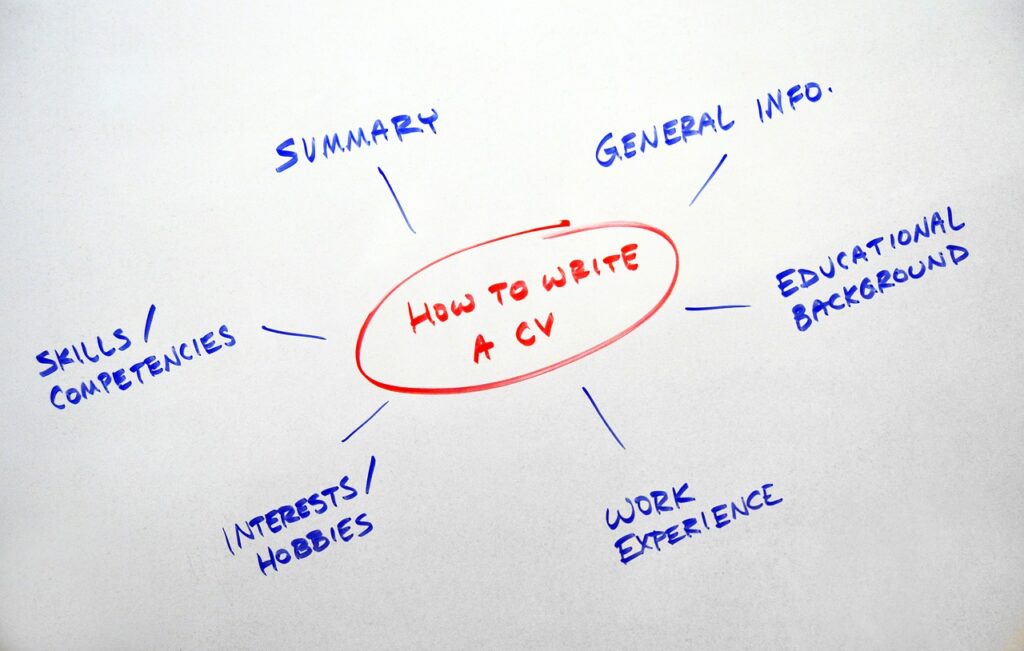Resume Writing Tips and Mistakes You Want to Avoid
Resume writing tips are plentiful online, but few cover the essentials. Here we will explore the most essential tips and the mistakes to avoid. A good resume can either make or break your chances at landing the job you were gunning for. It can also be the first or last step in the hiring process. Keep in mind that what most of us learned in school and college about crafting the ‘ideal’ resume still holds true in some way, shape or form, but make no mistake that there is no such thing as a perfect resume. Whether you are a fresh out of college graduate or a seasoned professional, there is always room for improvement.
Even though there is no such thing as a perfect resume, you can follow some best practices to avoid common mistakes in your CV. Here at Pure Staffing Solutions, we have put together a list of the best resume writing tips that can help you craft a CV with an edge and avoid common mistakes.
Table of Contents
ToggleResume Writing Tips #1: Avoid Using Generic Information
- One might think that crafting an ideal resume would be one that has a ‘one-size fits all’ approach, but this could not be further from the truth. The problem with taking this route is that it quickly becomes generic or unimpressive to the recruiter.
- Why would they take your generic resume over that of someone who has tailored theirs, specifically for a certain role? At the end of the day, it comes down to knowing your audience.
- When a recruiter sees that you have taken the extra effort to customize your CV in such a way that it reflects the needs and wants of a company as well as its values, then your chances go up. Keep in mind that a company only hires because they have a problem and the candidate is the solution. Hence, your resume needs to reflect that you are the best solution for the company.
- As the old saying goes: “Jack of all trades, Master of none.” This is exactly what you want to avoid! Companies want bang for their buck, this means they want experts who have mastered their trade-craft, or at the very least have a strong skill set in that department.
Resume Writing Tips #2: Typos and Grammar Mistakes to Avoid
- Yes, this may seem like the most obvious of the resume writing tips, but you would be surprised how often grammar mistakes and typos pop up. Remember, not everyone on Earth is a native English speaker, and this means that mistakes will appear despite your efforts to keep the wording clean.
- Even if done unintentionally, the only result that matters is the impression that it leaves on the recruiter. Grammar mistakes could lead them to jump to conclusions such as ‘this person doesn’t care’ or ‘they can’t communicate well enough’ and this can be detrimental to your chances of landing that job.

- One way to avoid such mistakes is through the use of programs like the word document, which helps catch mistakes and grammatical errors. However, the best editor is the human eye. Review your CV several times to make sure that you didn’t miss anything.
- Don’t stop there, ask friends, family, colleagues to review it once too. A fresh pair of eyes is always helpful as they are seeing it for the first time too, similar to the recruiter. Think of it like a test screening before you send it in.
Resume Writing Tips #3: The Best English Is Not Always the Right English
- As far as top resume writing tips for freshers and experienced professionals go, this is one of the most important. It is also one of the most dangerous mistakes you can make. From school, we have been groomed to believe that a high level of English is the best way to display your knowledge and ‘smartness’.
- This is not necessarily true when it comes to resume writing. An important line of thought in writing, language, or any literature really, is that you need to connect with your audience. You may not be writing a novel, but a resume should be given the same consideration.
- Avoid using a high level of technical English that only a few people can understand. It could fail to connect with the reader (recruiter). At the same time, you want to avoid using language that is too casual for obvious reasons.
- Too casual a language has no place in a professional setting and is a ‘no-no’ for most companies. On the other hand, while a more technical approach is safer, the excessive use of jargon could be seen as trying too hard or could altogether be lost on the hiring manager. So, the best option is to find the middle ground.

Resume Writing Tips #4: Burying the Lead
- When it comes to resume writing tips in 2021, is all about prioritization. Remember, a resume is essentially you on paper. It summarizes who you are as a professional, the skills you bring to the table, the knowledge you have, and so on.
- Keep in mind that recruiters don’t have time to leisurely read through your resume. They receive 100’s of resumes for any given position and they have to weed out the ideal candidate from a large pool of applicants. Hence, most often they will only have a few minutes to look at your CV. So, ask yourself, what is the first thing that you want them to see?
- What information is the most important to this role? What would best highlight your capabilities as the best candidate for the job? Information about your key accomplishments, experiences, and skills related to the concerned position should be mentioned in the top third of the resume. Grab the recruiter’s attention right out the gate!
- Yes, you still want to have some chronological order to the document, but consider listing your most recent, prominent, or relevant experience first and work your way forward.
“You are not your resume, you are your work.“ – Seth Godin
Resume Writing Tips #5: Highlighting Achievements Vs Duties
- You could list all the things you have done in your previous companies. However, this is essentially a reflection of your job description, while it carries some importance, it’s not really a ‘need-to-know’ kind of information.
- Recruiters care more about what you can achieve in your professional career. At the end of the day, what matters most is the results. One good way to avoid slipping into the duty listing is to describe how you went above and beyond what was required of you, the milestones you achieved, and so on.
- Go as far as to mention awards you received for your efforts, the challenges you overcame, and any other special forms of recognition that you may have received for your quality of work.
Resume Writing Tips #6: Not Providing Quantifiable Data is a Mistake
- If you think about it, numbers are the real language of any business. One of the most common mistakes made in drafting a CV, is doing so without any quantifiable data or numbers. The facts behind the claims of your experience need to be present.
- Regardless of what industry you work in, there is always some form of numbers that can lay out your progress or work over a given course of time. For example, try writing things like ‘I received a 95% success rate in my position’ or ‘I helped 10,000 customers/clients over a course of 10 years’. This gives recruiters a factual idea of your work ethic and performance standards.
Resume Writing Tips #7: Don't Make It Too Short or Too Long
- Nobody wants to read a book, at the same time too short a CV could give off the impression that you didn’t put in enough effort, or worse yet, it could hinder the presence of highly important information.
- You should not sacrifice information for the length and vice versa. Ideally, you want to keep the resume about one page, at the most two pages if push comes to shove. You are shooting for a summary of your entire career, so keep it as a good rule of thumb.

Resume Writing Tips #8: Implementing a Poor Visual Design
- Visuals are as important as the content when it comes to resumes. A lot of times, the sole reason that recruiters might not bother to even go through your CV is that they quite simply don’t have the time to visually sort through all the clutter.
- A good resume needs to be readable. There is no point in having the best content in the world when no one can even read it. It’s counter-productive. Shoot for a design that errs on the side of minimalism. This also has the added advantage of giving you more room to put in important information.
- Remember the saying: “The first impression is the best impression”, and this is the role that a good visual design brings to the table. Vibrancy, minimalism, and professionalism are the cornerstones of a good resume format.
Resume Writing Tips #9: Using Wrong Contact Information
- You may think, ‘Surely, I don’t do this!’ But, you may be surprised at how often this mistake happens when it comes to resumes. More often than not, a resume is a revision of your old CV from when you first graduated or one that has not been updated in a few years.
- Whatever the case, you might have changed your address, your cellphone plan, email ID over that time and could have missed updating that in the new version of the CV. Therefore, always make sure to double-check the contact information. The same applies to any and all references that you might think to include. Check with those contacts and see if those numbers and IDs are still active.
“Every activity worth doing has a learning curve“ – Seth Godin, Ex- Dot Com Business Exec.
Drafting a Personal Profile With No Personality
- While professionalism, good language, and layout are all important aspects of a well-crafted resume, they are not the only things to consider. One important factor that is often overlooked is creative flair.
- As mentioned before, the resume is basically you on paper, and this also includes your creative side or your personality. A lot of times, recruiters will just receive resumes that are filled with technical jargon, work experience, and numbers. While this communicates your proficiency as a professional, it fails at emphasizing who you are!
- One of the most important resume writing tips is that you to avoid cliches such as ‘I’m a hard-working individual’ or ‘I work well in a team or individually’. Yes, these are good qualities, but recruiters are more concerned with how you gained your skills and the relevance it has to your position. Are you a problem solver? Can you think outside the box? These are some of the more important things. It should give them an idea of the type of employee you are while not directly stating it. This itself demonstrates your ability to communicate. Show, don’t tell as they say.
As one of the top recruiting agencies in Canada, these are some of the tips and tricks we believe you can use to avoid unnecessary mistakes and gain an edge over the competition when applying for your next job.






